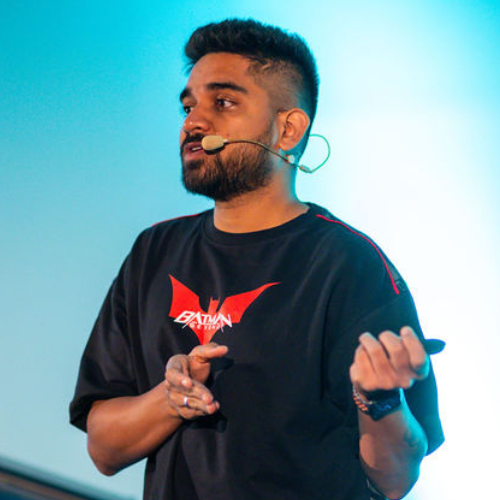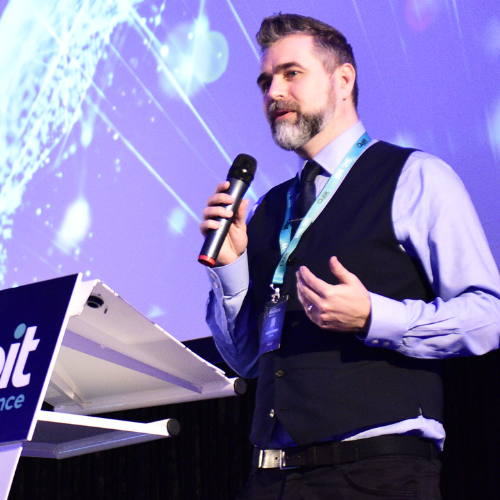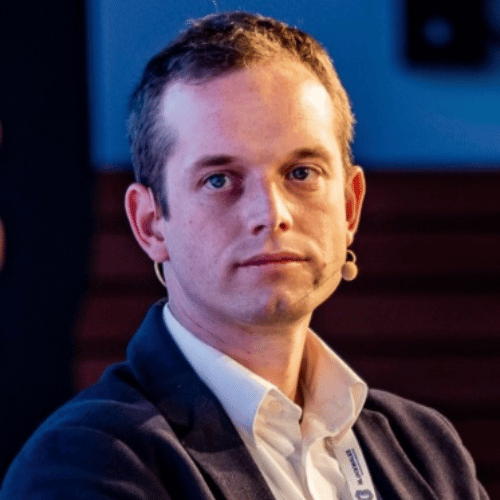Trainings and workshops for Qubit Conference® Prague 2025.
Offensive Emailing
The training will take place on May 26, 2025
Email remains a critical vector in the modern cybersecurity landscape, serving as a primary channel for various threats, including malware distribution, phishing campaigns, and social engineering attacks. The Offensive Emailing training equips penetration testers and red team professionals with advanced skills to perform comprehensive email-based security assessments.
What will the training cover?
During this hands-on training, participants will explore:
- Fundamentals of email and advanced protocols essential for security testing
- Techniques for mapping and analyzing target infrastructure
- Building email-sending infrastructure for optimal campaign execution
- Designing and implementing realistic attack scenarios
- Methodologies for measuring and analyzing campaign effectiveness
This practical training enables security professionals to simulate real-world email-based threats, helping organizations identify vulnerabilities in their email security and assess employee security awareness. Participants will gain practical skills to conduct thorough email security assessments and provide actionable recommendations to enhance organizational resilience.
Participants will gain expertise in designing and conducting sophisticated email security assessments.
They will learn techniques to bypass common email security controls, understand their limitations, and gain practical experience in building and maintaining sending infrastructure for security testing.
Participants will also learn to create realistic scenarios that test both technical defenses and human awareness.
- Basic knowledge of Linux
- Understanding of DNS
Mastering Threat Hunting
The training will take place on May 26, 2025
What will the training cover?
What We’ll Cover in the “Pure Hands-on” Training:
- Fundamentals of Threat Hunting: Reactive vs. proactive approaches, what to pursue and ignore.
- Frameworks for Threat Hunting: Structured and unstructured methods, hunting threats via blogs, scraping Paste Bin, and following rumors.
- Criminal Profiling: MITRE vs. Any.run vs. the hunter’s instinct.
- Staying Grounded: Preliminary threat hunting, Indicators of Compromise (IOC), and Indicators of Attacks (IOA).
- You’ve Got the Gold Pack: Scouting for MOV in Pcaps.
- Hunting in the Dark: Rootkits and office documents.
- The Cloud is the New Gotham: MITRE for the Cloud, AWS, and the awesomeness of log collection.
- Every Cloud Has a Silver Lining (and a Threat): Detecting attack patterns and identifying attempted attacks.
- H(AI)! Did You Miss Me?: Leveraging AI for triaging alerts, pattern comparison, and model mojo. Can we create playbooks with AI?
Registered participants will receive details about the VM for download, including files and necessary software, 20 days before the training.
Hacking Gamification
The training will take place on May 26, 2025
Cybersecurity professionals must stay ahead of malicious attackers to protect their organizations from constantly evolving cyber threats. Hacking gamification is an innovative way to learn and understand hacking techniques, penetration testing, and incident response strategies. In this observation-based training, participants will gain valuable insights into hacker tactics, tools, and methodologies without needing hands-on involvement.
What will the training cover?
The training will guide you through ethical hacking. Joseph will demonstrate tools and techniques commonly used by hackers and provide a detailed walkthrough of two selected systems. He will explain each step of the process, from initial enumeration and exploitation to privilege escalation, while offering actionable recommendations for mitigating risks in real-world environments.
Participants will see live demonstrations of:
- Techniques for enumerating systems and services on endpoints.
- Strategies for exploiting vulnerabilities to discover and leverage weaknesses.
- Methods for creating payloads and executing reverse shells.
- Privilege escalation techniques to gain elevated access.
At the end of this session, participants will have a deeper understanding of:
- Ethical hacking tools such as Metasploit, Nmap, BurpSuite, and Netcat
- Common vulnerabilities and how attackers exploit them
- Effective strategies for strengthening endpoint security and protecting against malicious threats
This training is observation-based. It focuses on demonstrating ethical hacking techniques. Participants will not engage in practical activities but will gain critical insights into effectively securing their environment.
LAZARUS DevSecOps Workshop
The workshop will take place on the May 28 2025, as part of the conference program in the technical track.
What will the workshop focus on?
Workshop Agenda:
1. Overview of the LAZARUS EU Project (30 min)
- Opening remarks and workshop objectives.
- Introduction to LAZARUS: A holistic platform focused on security and performance throughout the entire Software Development Life Cycle (SDLC).
Project Objectives:
- Design of an intelligent framework for secure application development.
- Implementation of automated self-healing mechanisms for compromised systems.
- Development of innovative methods for vulnerability detection.
- Integration of AI and machine learning to automate security checks in DevSecOps.
- Current status and key milestones achieved.
- FAQ
2. Interactive Demonstrations of LAZARUS Platform Services (55 minutes)
Detection of Secret Management Issues:
- Capabilities of the tool and current development status.
- Hands-on testing with a guided scenario.
Code Tainting and Static Code Analysis:
- Features for identifying code quality issues and potential vulnerabilities.
Interactive code analysis session.
SQL Injection Vulnerability Detection:
- Demonstration of detection methods.
Fuzzing Techniques:
- Overview of fuzz testing and anti-fuzzing capabilities.
- Live fuzzing demonstration on sample code.
- CVE Scanning and Container Vulnerability Assessment:
- Tools for identifying known vulnerabilities in dependencies and container images.
- Step-by-step scanning process walkthrough.
Network Attack and DDoS Detection:
- Mechanisms for monitoring and mitigating network threats.
- Simulated attack scenario.
The workshop will be led by

Director Responsible for Research Projects | APWG.EU | Spain

Panagiotis Markovits
Senior Researcher / Software Engineer | SOLVUS TECH | Spain












